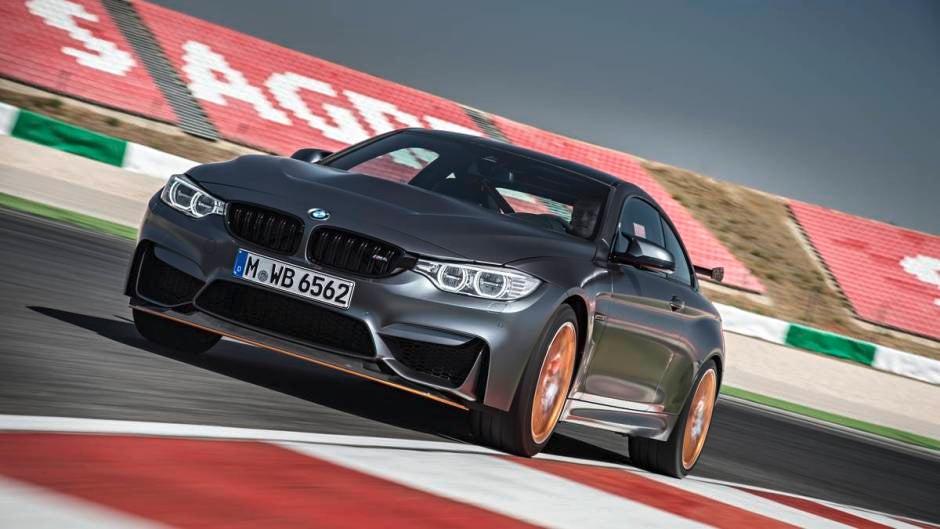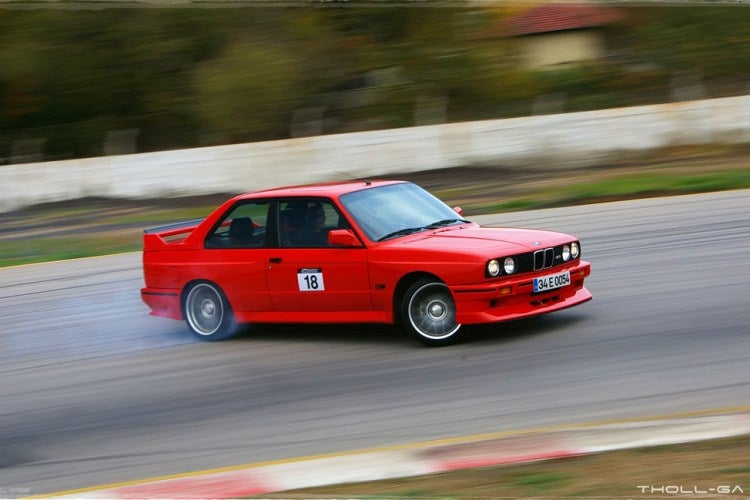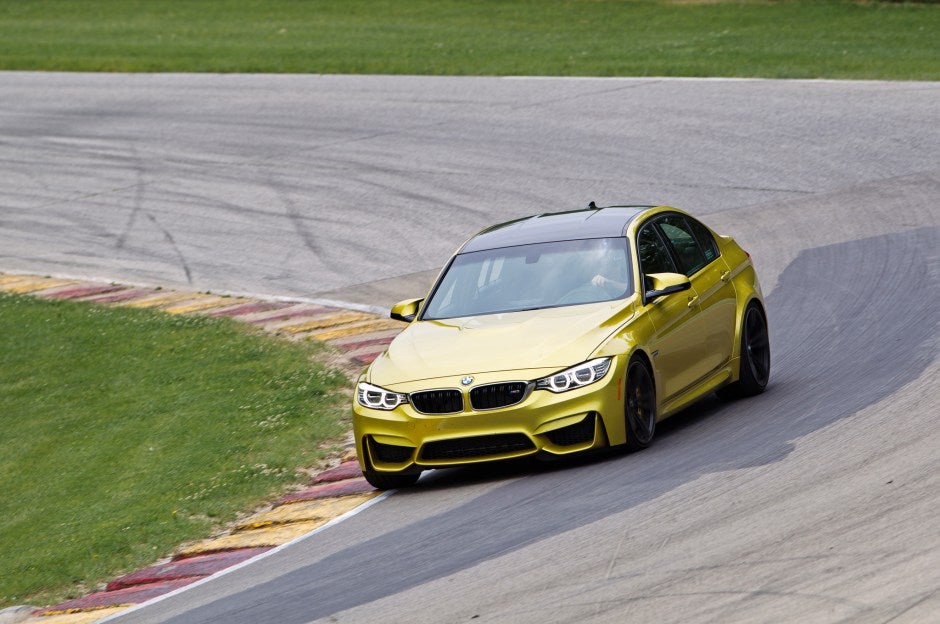 by "Justin Hughes" (justinhughes54)
by "Justin Hughes" (justinhughes54)
Published 04/12/2017 at 17:21
 by "Justin Hughes" (justinhughes54)
by "Justin Hughes" (justinhughes54)
Published 04/12/2017 at 17:21
No Tags
STARS: 3

This week the Genesee Valley Chapter (GVC) BMW CCA first banned late model cars with automatic driver aids that they claimed could become a hindrance on the track, then renounced the ban after disagreement from both BMW CCA national and BMW of North America. This opens an embarrassing can of worms for BMW CCA. The club has a long history of enabling and encouraging their members to enjoy their BMWs at their excellent high performance driving school events. Yet GVC clearly had reasons for announcing the ban in the first place. Were those reasons warranted? Did BMW NA and BMW CCA national educate the concerned members of GVC that these systems would not cause the problems on track that concerned them? Or did they pressure GVC into backing down to sweep this issue under the carpet?
Read on Right Foot Down or continue below
!!! UNKNOWN CONTENT TYPE !!!

On Sunday, April 9, the Genesee Valley Chapter BMW CCA announced that “GVC have decided to ban all vehicles equipped with Automatic Emergency Braking and/or Lane Keeping Assistance systems (or their equivalent) for use in our HPDE events, even if these systems may be disabled by the driver.” The reason given was that “cars with ‘automatic emergency braking’ and/or ‘lane keeping assistance’ systems may behave in unpredictable and undesirable ways on a racetrack.” Naturally there was an uproar, particularly as this news spread like wildfire throughout the enthusiast community. BMWs, once known as “The Ultimate Driving Machine,” were now The Ultimate Machine That Drives For You And Makes Bad Decisions On The Track.
Two days later, on Tuesday the 11th, BMW of North America and the BMW CCA national office made their own announcement, calling GVC’s decision an “unauthorized policy,” and saying that “The national BMW CCA office does not share their opinion and is discussing the issue with the chapter.” They also clarified that the systems in question can be adjusted or turned off entirely so that they will not impair the car’s capabilities in the relatively unusual and special situation of driving on a race track.
Today, Wednesday the 12th, GVC announced “Unfortunately, this premature statement was made public before our discussions and research had been concluded,” and echoed BMW NA and BMW CCA’s proclamation that “BMW CCA continues to work with BMW NA to educate and develop a nationwide procedure for including BMWs with drivers aids in HPDE schools.” The ban is lifted, and all BMWs (and other makes), new and old, are welcome to participate in their HPDE events, no matter what driving aids they do or don’t have.
!!! UNKNOWN CONTENT TYPE !!!

BMWs are extremely popular enthusiast vehicles. Much of the
Right Foot Down
staff currently owns a BMW, or, like me, has owned one in the past. Some lament the recent perceived watering down of the BMW brand, of becoming luxury cars for the masses rather than the great driving enthusiast vehicles they once were. But that isn’t relevant to this discussion. What is relevant is that electronic driver aids are more and more common in today’s cars, regardless of brand, and they’re here to stay. BMW may let you turn them off, but other brands don’t. It’s also likely that someday, like so many other safety items, they’ll be required by the government on all new cars. What happens to the enthusiast who takes their car to the track that is unable to turn these systems off?
Though GVC now claims that they made the announcement “before our discussions and research had been concluded,” they would not have announced their ban if they didn’t feel strongly about it at the time. There is good reason for concern. If you’re intentionally clipping a gentle curb on the track, the lane departure system may abruptly steer opposite the direction of the turn to prevent you from leaving your “lane” thanks to the painted line at the edge of the track. These lines may also cause lane departure systems to “stay in your lane” rather than take the proper racing line through a turn. You may enter the turn at a speed appropriate for the racing line but that you won’t be able to hold if you keep it between the lines at the outside of the turn, resulting in an off track excursion or a sudden meeting with a wall.
!!! UNKNOWN CONTENT TYPE !!!
Similarly, automatic braking systems could cause problems if the car in front of you goes slower than expected in the middle of a turn. Sudden hard braking in the middle of a turn can cause you to spin and crash. That’s something everyone learns early in their high performance driving career. It’s bad enough if it happens because you mash the brakes with your own foot, but when the car suddenly brakes for you, you don’t expect it, your reactions are slower, and you’re far more likely to have a very bad day.
You’re not safe just because you’re out there in your completely non-automated E30, Miata, Subaru BRZ , or whatever. You might not expect the late model BMW ahead of you to make some wacky semi-autonomous maneuver that makes no sense on a race track. The maneuver itself, or the driver’s recovery from it, could end up putting you in harm’s way, even if your car has none of these systems and everything you do behind the wheel is right.
!!! UNKNOWN CONTENT TYPE !!!

Certainly each individual sanctioning body of any motorsport event should have the power to make rules as they see fit. Different organizations may use different insurance companies, which is why passengers are allowed at some autocrosses and not at others. If you want to see inconsistency, try researching requirements for convertibles on the track. This was a major concern when I had my Miata. One organization was fine with just a factory hardtop.
Track Night In America
is fine with built-in roll protection, like the roll hoops of a modern Miata or a Porsche Boxster. Most organizations required a time trial legal roll bar, minimum four-point harnesses, and the driver to pass the “broomstick test” of their helmeted head being below an imaginary line between the top of the roll bar and windshield. Some organizations required arm restraints in addition to that. And still others prohibited all convertibles no matter how they were equipped, even fully prepared Spec Miatas.
Yet here, BMW CCA national prohibited one of their chapters from setting their own rules. The joint statement with BMW NA shows that they were involved, too. It’s entirely possible that GVC misunderstood how these semi-autonomous systems work, and, BMW CCA national brought in BMW NA to talk to GVC directly, explain how they work, and satisfy their concerns enough for GVC to lift the ban. But if I put on my tin foil hat, I can also see BMW CCA national and BMW NA ganging up on GVC to override the ban after the media buzz implying that new BMWs are unsafe for the track. There is such a thing as bad publicity, and for BMW NA, this was it. So which story is it? We may never know. Personally, I think either story is plausible.
Read on Right Foot Down or continue below
Even giving BMW NA and BMW CCA the benefit of the doubt, this issue isn’t going to go away. Assuming that BMWs are and will continue to be perfectly safe on the track, they have no control over other manufacturers. The first car I ever drove on a track was my Saturn SC2 after my BMW 320i conked out on me. It looked cool, but it’s not exactly an enthusiast car (though many of us fooled ourselves into believing so at the time). It’s exactly the type of situation that could put a non-enthusiast car with systems that can’t be disabled onto a track. Events like Track Night In America pride themselves on allowing pretty much anyone in any car to get on track. Even my wife’s Ford Flex qualifies because it’s wider than it is tall, SCCA’s requirement for a crossover/SUV. Being a 2012 model it has no semi-autonomous systems that would affect it on track (only self parking capability that we never use), but new or future models might.
It might not be an issue right now, but the BMW kerfluffle that happened this week brings what I feel is a very important issue to light – the issue of semi-autonomous driving aids behaving as they should for the street when such behavior is absolutely the wrong action on the track. This affects everybody – you may be driving a 1990 Miata that doesn’t even have ABS, but the late model car that just passed you may have all the modern bells and whistles. One reason why HPDE events have a fairly low casualty rate is because we know everyone is going to brake hard just before turn one, and we know approximately what line they should be taking. We can predict generally what the other cars around us are going to do at any given moment. Will your old Miata be able to avoid the semi-autonomous car ahead of you if it behaves unpredictably in the next turn?
The original article at BimmerFile and its subsequent updates was a major source of information for this article.